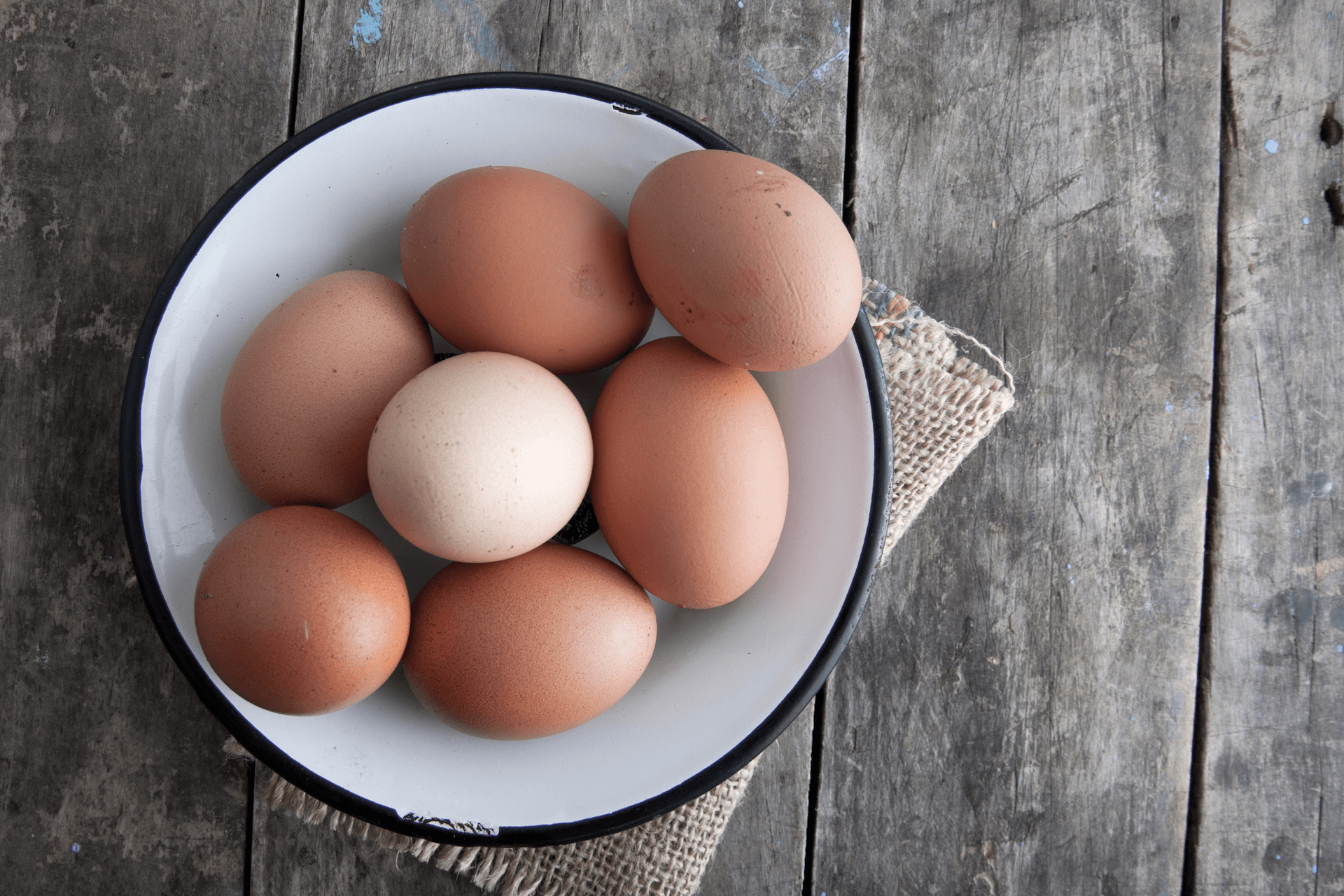Your Eggs As Your Age
Did you know that your grandma, your mom and half of you were ALL in the SAME body at the SAME time for an average of 20 weeks!?!
When your grandma was about half way through her pregnancy with your mom (ie. 20 weeks gestation), your mom had about 6 to 7 million eggs. One of these eggs would eventually go on to become half of you!
Our Eggs
It’s always been incredibly fascinating for me to learn that:
- When we’re a fetus, we have 6 to 7 million eggs
- When we’re a newborn baby, we have 1 to 2 million eggs
- When we hit puberty and get our period, we have 400,000 to 500,000 eggs
- After our first period, we lose about 1000 follicles every single month
- And after the age of 35, we lose exponentially more follicles every single month
The Average Age to Become a Mom
Over the years, the average age of the typical Canadian mother at childbirth went from 24 years old in the 1950s to 29 years old in the 2010s. I would imagine that this average age is inching higher with the next set of census numbers coming out for the 2020s.
If you’re in your late 20s / 30s / 40s, you’re probably nodding along with me as you read those stats. I myself was a first time mum in my late 30s and I can’t imagine what my life would be like if I had become pregnant in my 20s!
Looking at my group of friends growing up, most of us didn’t get married or find our “forever” partners until we were in our early 30s. This meant that most of us got married / moved in together / bought a house / “settle down” / etc in our early to mid 30s. This also meant that the majority of us didn’t start trying to start a family until we were in our mid to late 30s after life — both personal and professional — stabilised.
The Importance of 90-100 Days / 3-4 Months
I wrote briefly about the importance of the 90-100 days BEFORE conception (HERE) and how it’s vitally important when trying to positively impact both the egg AND the sperm health through nutrition, lifestyle and supplements.
For a quick summary: it takes about 3-4 months for an egg or sperm to mature, which means you have 90-100 days to make a positive impact on the health and quality of your egg or sperm through nutrition, lifestyle and supplements.
Ideally, you start working with a naturopathic doctor at least 6 months (12 months would be even better!) in order to get started on all of these changes and tweaks to your every day habits.
What can you do starting now?
1. Nutrition
Organic or not organic?
Intermittent fasting or not?
Keto or paleo?
Smoothies or juicing?
The questions when it comes to the perfect fertility diet are endless. And my answer is often the same: it depends. This certainly isn’t a super popular answer but it’s the truth.
It all depends on: the reasons around WHY you’re struggling with your fertility, your specific make-up when it comes to your health / medical conditions both past AND present, your diet/lifestyle and even your family medical history.
2. Lifestyle
What we DO know is that there are basic lifestyle modifications that everyone can and should do asap.
a) Stop Drinking Alcohol
There was a study done in 2013 of couples who had 2 or more failed IVF attempts. They found that women who didn’t drink at all had a 90% chance of conceiving and giving birth to a baby within 3 years. In comparison, they found that women who drank 3 drinks a week had a 30% chance of conceiving within 3 years and women who drank 1-2 drinks a week had a 66% chance of conceiving within 3 years.
b) Decrease Your Coffee Consumption
The research shows that if you drink 5 or more cups of coffee a day, you’re 50% less likely to get pregnant and 40% more likely to have a miscarriage.
The good news is that moderate caffeine consumption (ie. 200 mg of caffeine per day, which is equivalent to 12 oz of coffee) doesn’t appear to affect fertility or increase miscarriage.
Having said that, the less you drink, the better. You can also try to gradually replace your coffee intake with green tea or herbal coffee alternatives that also contain lots of antioxidants!
c) Stop Smoking
I honestly don’t think I really have to get into this, but just in case there’s still a few people out there who don’t fully understand the negative impact of smoking … it’s associated with an increased risk for:
- Miscarriage
- Ectopic pregnancy
- Placental abnormalities
- Low birth weight
- Preterm labour
- Children who are at a greater risk for SIDS, asthma, colic and childhood obesity
d) Stop Recreational Drugs
The negative impact of recreational drugs on both your fertility and your pregnancy / baby should be a strong motivating factor for you to eliminate all recreational drug use as soon as possible.
e) Try Your Best to Get to an Ideal Weight
The link between obesity and decreased fertility and/or increased risks during pregnancy to mom and baby are well known. These include:
- Lower pregnancy rates
- Lower live birth rates
- Higher rates of miscarriage
- Gestational diabetes
- Preeclampsia / pregnancy-induced hypertension
- Large or small for gestational age babies
- Increased rate of caesarian section births
- Premature birth
- Increased rate of postpartum hemorrhage
- Congenital birth defects
- Overweight or obese children and into adulthood
- Increased blood pressure in children as young as 5-6 years old
- Increased risk of developing diabetes at a later age
Weight for the male partner is also important because the research shows that obese men have reduced sperm count and sperm motility!
3. Supplements
If you were to do a Google search on “fertility supplements”, you apparently get 191 million results back in 0.85 seconds (I literally JUST tried!). That’s A LOT of pages and links to read through …
Most of my patients see me for the first time and one of the questions I always ask my new patients is: what supplements are you currently taking? Followed up with: what other supplements are sitting in your cupboard?
I firmly support the use of supplements BUT I do NOT support taking all of the supplements. Coming up with an individualised treatment plan is where naturopathic doctors become a valuable secret weapon for you in your fertility journey.
Taking 50 supplements because your mom/BFF suggested something; your read an article about it; your friend who got pregnant after trying for years took it; it was on sale at the supplement store; your saw a post about it on IG; etc etc etc. NONE of these reasons is valid.
Further to my argument is that not all supplements are created equally!
Here is a summary of how I choose supplements for my patients:
- Figure out exactly what nutrients or supplements are beneficial for my patient’s specific case
- Determine which form of the nutrient or ingredient is the most bioavailable
- Determine which supplement companies out there offer this bioavailable form
- Find a few supplements that may be “combo” options so that my patients don’t have to take a separate supplement for each ingredient
- Determine which supplement companies out of these options provide CoAs
- Calculate the cost of the supplement per day
- Provide the options to my patient
If you want to learn more about how you can determine which supplements are high quality, and which ones to ignore, feel free to request a copy of the FREE Supplement Guide that I created for my patients and every person out there who’s interested in supplements.
The Take-Away Message
- Start working on your fertility health as early as possible
- Stop drinking alcohol
- Minimise your coffee consumption
- Stop smoking
- Stop recreational drug use
- Maintain an ideal weight as much as possible
- Work with a naturopathic doctor in order to have a customised list of supplements that are both beneficial for your specific case AND of high quality









